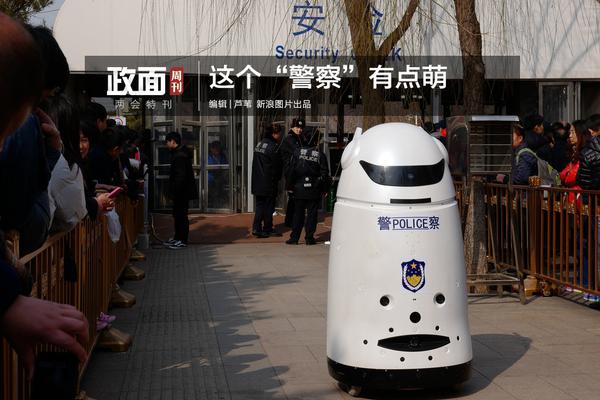
1. System stability refers to 1 System stability refers to a certain stable state shown by system elements under external influence. Its meanings are roughly divided into the following three categories: (1), external temperature, mechanical and other various changes, which do not have a significant impact on the state of the system.
2. The so-called system stability refers to the performance of the system recovering from the initial deviation state to the original equilibrium state after the disturbance disappears. In classical control theory, the sufficient necessary condition for system stability is that when time tends to infinity, the unit pulse of the system is correspondingly equal to zero.
3. It means that when the system is disturbed, it deviates from the original equilibrium state, and when the disturbance disappears, the system can gradually return to the original equilibrium state, which means that the system is stable.
The so-called system stability refers to the performance of the system recovering from the initial deviation state to the original equilibrium state after the disturbance disappears. In classical control theory, the sufficient necessary condition for system stability is that when time tends to infinity, the unit pulse of the system is correspondingly equal to zero.
Then the number of Z of the closed-loop right poles of the system is: Z=N+P. When Z=0, the system is stable; when Z0, the system is unstable.
The stability of a linear system is the main performance indicator of the system. The methods for judging the stability of a linear system include algebraic method, root trajectory method and Nyquist judgment method.
Stable, which shows that this kind of system has good security and will not often crash. It is very mature, but the openness is poor. The most stable system in the world is MSDOS, but its openness is very poor. There are many restrictions. Now it is a personal operation to say that the system is stable.
What does system stability mean? 1 System stability refers to a certain stable state shown by system elements under external influence. Its meanings are roughly divided into the following three categories: external temperature, mechanical and other changes, which do not have a significant impact on the state of the system.

The stability of the system refers to 1 system stability refers to a certain stable state of system elements under the influence of the outside world. Its meanings are roughly divided into the following three categories: (1), external temperature, mechanical and other various changes, which do not have a significant impact on the state of the system.
It means that when the system is disturbed, it deviates from the original equilibrium state, and when the disturbance disappears, the system can gradually return to the original equilibrium state, which means that the system is stable.
The so-called system stability refers to the performance of the system to recover from the initial deviation state to the original equilibrium state after the disturbance disappears. In classical control theory, the sufficient necessary condition for system stability is that when time tends to infinity, the unit pulse of the system is correspondingly equal to zero.
The stability of a linear system is the main performance indicator of the system. The methods for judging the stability of a linear system include algebraic method, root trajectory method and Nyquist judgment method.
System stability refers to the performance of the system that can gradually recover to its original equilibrium after being disturbed by external disturbances. If the system can gradually restore balance through self-regulation after the disturbance disappears, it means that the system is stable.
System stability refers to a certain stable state shown by system elements under external influence. It containsThere are roughly the following three categories: (1), external temperature, mechanical and other changes, which do not have a significant impact on the state of the system.
System stability refers to the performance that the system can gradually recover to its original equilibrium state after being disturbed by external disturbances. If the system can gradually restore balance through self-regulation after the disturbance disappears, it means that the system is stable.
System Stability Definition 1 System stability refers to a certain stable state shown by system elements under external influence. Its meanings are roughly divided into the following three categories: (1) External temperature, mechanical and other changes do not have a significant impact on the state of the system.
The so-called system stability refers to the performance of the system to recover from the initial deviation state to the original equilibrium state after the disturbance disappears. In classical control theory, the sufficient necessary condition for system stability is that when time tends to infinity, the unit pulse of the system is correspondingly equal to zero.
Casino free 100 no deposit-APP, download it now, new users will receive a novice gift pack.
1. System stability refers to 1 System stability refers to a certain stable state shown by system elements under external influence. Its meanings are roughly divided into the following three categories: (1), external temperature, mechanical and other various changes, which do not have a significant impact on the state of the system.
2. The so-called system stability refers to the performance of the system recovering from the initial deviation state to the original equilibrium state after the disturbance disappears. In classical control theory, the sufficient necessary condition for system stability is that when time tends to infinity, the unit pulse of the system is correspondingly equal to zero.
3. It means that when the system is disturbed, it deviates from the original equilibrium state, and when the disturbance disappears, the system can gradually return to the original equilibrium state, which means that the system is stable.
The so-called system stability refers to the performance of the system recovering from the initial deviation state to the original equilibrium state after the disturbance disappears. In classical control theory, the sufficient necessary condition for system stability is that when time tends to infinity, the unit pulse of the system is correspondingly equal to zero.
Then the number of Z of the closed-loop right poles of the system is: Z=N+P. When Z=0, the system is stable; when Z0, the system is unstable.
The stability of a linear system is the main performance indicator of the system. The methods for judging the stability of a linear system include algebraic method, root trajectory method and Nyquist judgment method.
Stable, which shows that this kind of system has good security and will not often crash. It is very mature, but the openness is poor. The most stable system in the world is MSDOS, but its openness is very poor. There are many restrictions. Now it is a personal operation to say that the system is stable.
What does system stability mean? 1 System stability refers to a certain stable state shown by system elements under external influence. Its meanings are roughly divided into the following three categories: external temperature, mechanical and other changes, which do not have a significant impact on the state of the system.

The stability of the system refers to 1 system stability refers to a certain stable state of system elements under the influence of the outside world. Its meanings are roughly divided into the following three categories: (1), external temperature, mechanical and other various changes, which do not have a significant impact on the state of the system.
It means that when the system is disturbed, it deviates from the original equilibrium state, and when the disturbance disappears, the system can gradually return to the original equilibrium state, which means that the system is stable.
The so-called system stability refers to the performance of the system to recover from the initial deviation state to the original equilibrium state after the disturbance disappears. In classical control theory, the sufficient necessary condition for system stability is that when time tends to infinity, the unit pulse of the system is correspondingly equal to zero.
The stability of a linear system is the main performance indicator of the system. The methods for judging the stability of a linear system include algebraic method, root trajectory method and Nyquist judgment method.
System stability refers to the performance of the system that can gradually recover to its original equilibrium after being disturbed by external disturbances. If the system can gradually restore balance through self-regulation after the disturbance disappears, it means that the system is stable.
System stability refers to a certain stable state shown by system elements under external influence. It containsThere are roughly the following three categories: (1), external temperature, mechanical and other changes, which do not have a significant impact on the state of the system.
System stability refers to the performance that the system can gradually recover to its original equilibrium state after being disturbed by external disturbances. If the system can gradually restore balance through self-regulation after the disturbance disappears, it means that the system is stable.
System Stability Definition 1 System stability refers to a certain stable state shown by system elements under external influence. Its meanings are roughly divided into the following three categories: (1) External temperature, mechanical and other changes do not have a significant impact on the state of the system.
The so-called system stability refers to the performance of the system to recover from the initial deviation state to the original equilibrium state after the disturbance disappears. In classical control theory, the sufficient necessary condition for system stability is that when time tends to infinity, the unit pulse of the system is correspondingly equal to zero.
Hearthstone arena deck Builder
author: 2025-02-10 15:34100 free bonus casino no deposit GCash
author: 2025-02-10 17:07 PAGCOR online casino free 100
PAGCOR online casino free 100
575.55MB
Check Casino Plus app
Casino Plus app
927.98MB
Check LR stock price Philippines
LR stock price Philippines
985.89MB
Check Casino Plus free 100
Casino Plus free 100
952.81MB
Check DigiPlus stock
DigiPlus stock
896.17MB
Check Hearthstone arena deck Builder
Hearthstone arena deck Builder
497.85MB
Check Arena plus APK
Arena plus APK
858.11MB
Check LR stock price Philippines
LR stock price Philippines
225.68MB
Check UEFA TV
UEFA TV
947.51MB
Check Free sports events uefa champions league app android
Free sports events uefa champions league app android
472.47MB
Check DigiPlus fair value
DigiPlus fair value
346.43MB
Check Casino Plus GCash login
Casino Plus GCash login
715.27MB
Check Casino Plus app
Casino Plus app
479.11MB
Check Casino Plus app
Casino Plus app
947.74MB
Check Casino Plus login register
Casino Plus login register
518.59MB
Check UEFA TV
UEFA TV
959.36MB
Check Casino Plus free 100
Casino Plus free 100
769.83MB
Check DigiPlus Philippine
DigiPlus Philippine
889.73MB
Check Bingo Plus stock
Bingo Plus stock
333.99MB
Check 100 free bonus casino no deposit GCash
100 free bonus casino no deposit GCash
951.15MB
Check DigiPlus fair value
DigiPlus fair value
792.29MB
Check App to watch Champions League live free
App to watch Champions League live free
822.49MB
Check casino plus free 100
casino plus free 100
287.11MB
Check 100 free bonus casino no deposit GCash
100 free bonus casino no deposit GCash
215.56MB
Check European Cup live
European Cup live
815.52MB
Check Casino Plus free 100
Casino Plus free 100
731.89MB
Check UEFA Champions League live
UEFA Champions League live
292.69MB
Check Arena Plus login
Arena Plus login
897.99MB
Check Hearthstone arena deck Builder
Hearthstone arena deck Builder
435.28MB
Check European Cup live
European Cup live
269.47MB
Check Casino Plus GCash login
Casino Plus GCash login
439.99MB
Check Hearthstone arena class win rates reddit
Hearthstone arena class win rates reddit
621.55MB
Check Hearthstone arena
Hearthstone arena
548.53MB
Check UEFA Europa League
UEFA Europa League
657.16MB
Check App to watch Champions League live free
App to watch Champions League live free
952.49MB
Check Europa League app
Europa League app
998.54MB
Check
Scan to install
Casino free 100 no deposit to discover more
Netizen comments More
1313 UEFA EURO
2025-02-10 17:25 recommend
2990 UEFA Europa League
2025-02-10 17:14 recommend
1032 Hearthstone arena deck Builder
2025-02-10 16:41 recommend
2795 DigiPlus fair value
2025-02-10 16:18 recommend
1833 Casino Plus
2025-02-10 15:56 recommend